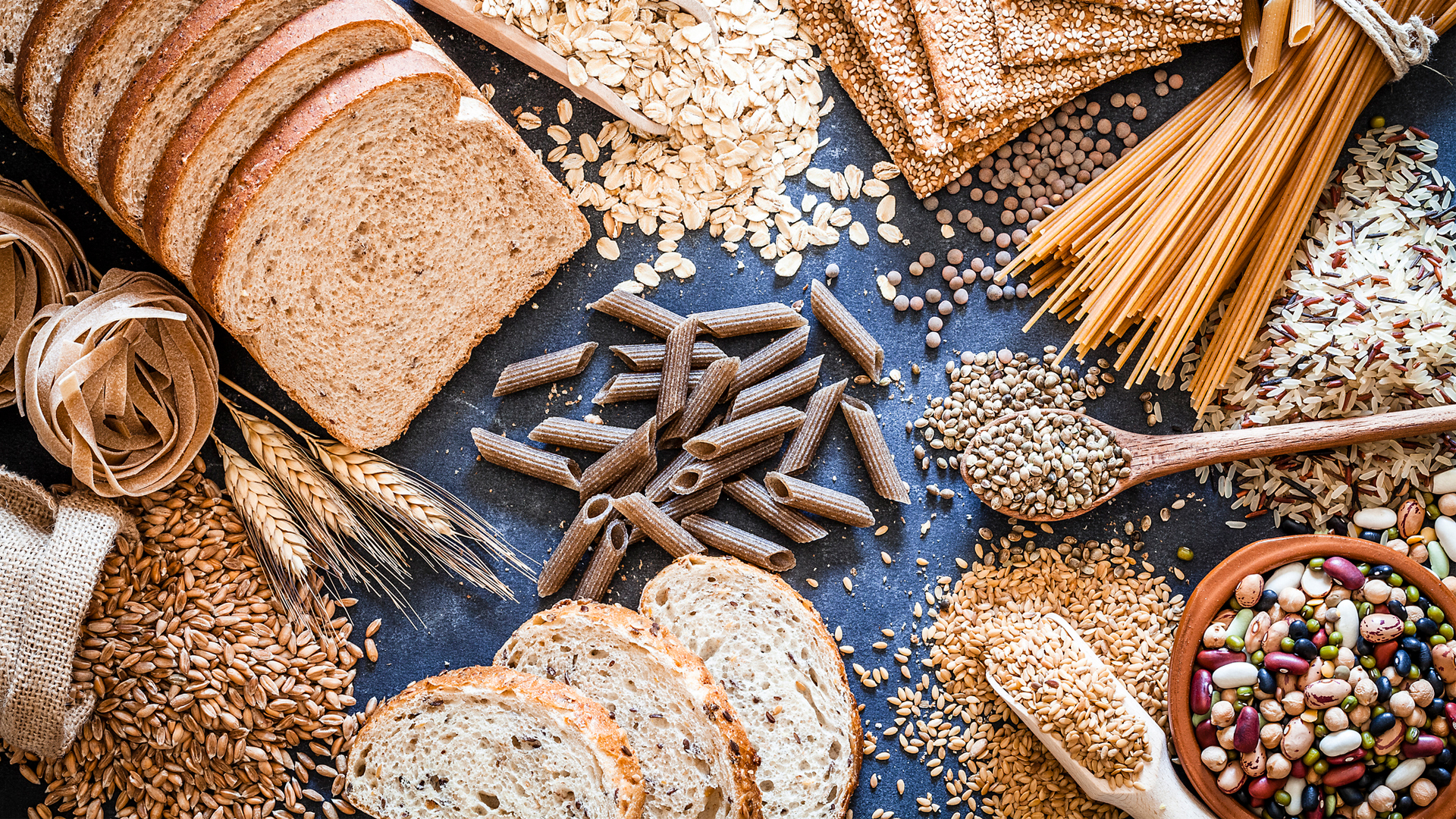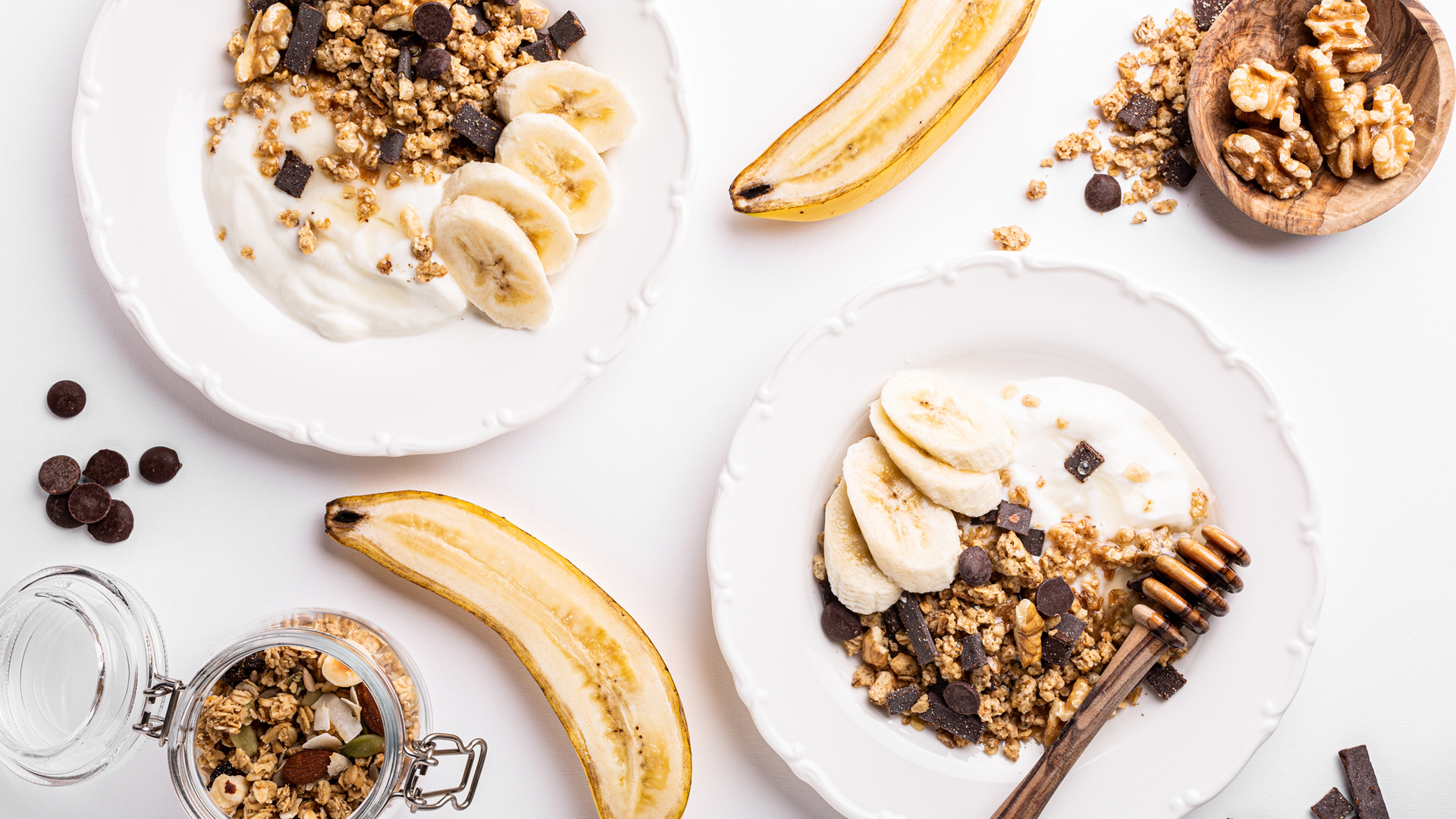Good carbs vs bad carbs: What you need to know
We break down the differences between good carbs vs bad carbs – and which ones you should be eating

Get the world’s most fascinating discoveries delivered straight to your inbox.
You are now subscribed
Your newsletter sign-up was successful
Want to add more newsletters?

Delivered Daily
Daily Newsletter
Sign up for the latest discoveries, groundbreaking research and fascinating breakthroughs that impact you and the wider world direct to your inbox.

Once a week
Life's Little Mysteries
Feed your curiosity with an exclusive mystery every week, solved with science and delivered direct to your inbox before it's seen anywhere else.

Once a week
How It Works
Sign up to our free science & technology newsletter for your weekly fix of fascinating articles, quick quizzes, amazing images, and more

Delivered daily
Space.com Newsletter
Breaking space news, the latest updates on rocket launches, skywatching events and more!

Once a month
Watch This Space
Sign up to our monthly entertainment newsletter to keep up with all our coverage of the latest sci-fi and space movies, tv shows, games and books.

Once a week
Night Sky This Week
Discover this week's must-see night sky events, moon phases, and stunning astrophotos. Sign up for our skywatching newsletter and explore the universe with us!
Join the club
Get full access to premium articles, exclusive features and a growing list of member rewards.
Carbohydrates often get a bad reputation and there’s a lot of confusion about good carbs vs bad carbs and what we should be eating, especially if weight loss is the goal.
First up, what are carbohydrates and why do we need them? According to registered nutritionist Kirsten Oddy, carbohydrates (carbs) are a type of macronutrient, alongside protein and fats, found in a variety of foods and drinks.
“We have three main types of carbs: fiber, starches and sugars,” she explains. “Fiber and starches are complex carbs, whereas sugars are simple carbs. Complex carbohydrates are the body’s preferred source of energy and help to fuel our nervous system, our muscles and organs. Simple carbohydrates, on the other hand, are digested much quicker and send immediate bursts of glucose (energy) into the bloodstream, often with little nutritional value.”
While low-carb diets are popular for weight loss, eliminating all carbohydrates can leave you low on energy and may even cause nutrient deficiencies.
That’s why it’s important to eat a balanced diet of all the five food groups (Fruits, vegetables, grains, protein foods and dairy) to get the vitamins and minerals the body needs to function properly. In this article we talk to Oddy about the differences between good carbs vs bad carbs, and why a balanced diet is important for your health.
What are 'good' carbs?
Not all carbs are created equal and some are healthier than others. Carbohydrates found in plant-based foods – complex carbs – are ‘good’ carbs, and are often packed with nutrients, such as bran and fiber that can help to improve your digestion and support metabolism.
“To reap the benefits of carbohydrates, try opting for carbs loaded with nutrients, such as wholegrains and fruit and vegetables; these are complex carbohydrates or ‘good’ carbs,” says Oddy.
Get the world’s most fascinating discoveries delivered straight to your inbox.
Some examples of good carbs include:
- Oats
- Quinoa
- Whole fruit
- Sweet potatoes (ideally with the skin)
- Beets
- Yogurt
- Bananas
- Carrots
- Nuts and seeds
- Brown rice
- Whole grain bread
- Legumes (beans, peas, lentils, soybeans and peanuts)

What are 'bad' carbs?
Simple or ‘bad’ carbs (also known as refined or processed carbs) are sugars, broken down quickly and used as energy, says Oddy.
During processing, the bran and germ of the whole grain are removed, which also removes fiber, vitamins, minerals and antioxidants, meaning these foods have little nutritional value.
“These types of carbs often get labeled bad but not all simple carbs are unhealthy. Some whole fruits and milk are composed of simple carbs, but still contain a variety of healthy nutrients,” says Oddy.
Examples of bad carbs include:
- White bread
- Pizza dough
- Pastries
- White pasta
- Beer
- Fruit juice
- Sugary sodas
- Pancakes
- Tomato sauce
- Cake
- Pretzels

What's the difference between good and bad carbs?
According to Oddy: “Choosing a variety of complex carbohydrates each day is brilliant for feeding the gut microbiome, promoting a healthy digestive system.
“These complex carbs will also have a lesser impact on blood sugar levels, which is particularly important for those with diabetes or polycystic ovary syndrome (PCOS).
Stable blood sugar levels will keep your energy and mood stable throughout the day, too.
“On the other hand, recent studies show that people who regularly consume foods containing low-quality, simple carbohydrates have an increased risk of chronic disease, such as diabetes and cardiovascular disease,” she says.
Eating too little or too many carbs can be equally unhealthy, too, and is associated with increased mortality, a study published in the Lancet found.
Should you avoid simple carbohydrates?
It’s important to note that not all simple carbohydrates are ‘unhealthy’ choices, adds Oddy.
“Simple carbs are present in many nutrient-rich foods, such as fruits and milk. The simple carbs to be mindful of are processed foods or foods with added sugars. Enjoying all foods and meals in moderation is normal and healthy – and key for physical and emotional wellbeing. The key word here is moderation. In my clinic, we try to remove labeling foods and remove the idea that certain foods or meals are inherently ‘bad’.”
This article is for informational purposes only and is not meant to offer medical advice.

Maddy Biddulph is a freelance health and fitness journalist with over 26 years of experience working for consumer media in the US and UK. As a Level 3 personal trainer and weight loss advisor she is used to trying out and reviewing the latest health and fitness products. At Maddy Biddulph Personal Training, she runs one-to-one and small group sessions, as well as group exercise classes. She specializes in mobility work with seniors and runs regular chair workouts in her hometown of Oxford.
 Live Science Plus
Live Science Plus










